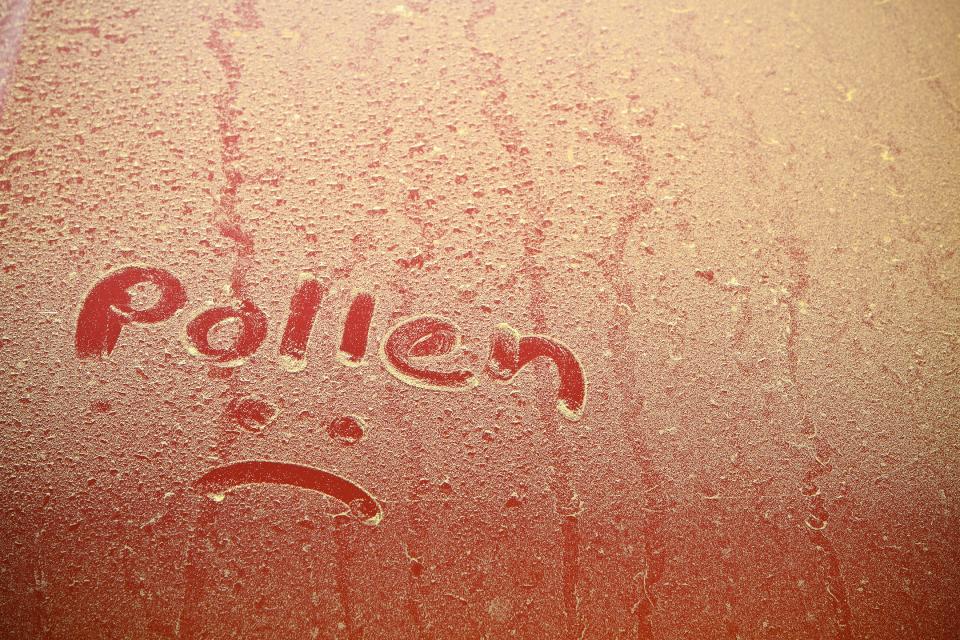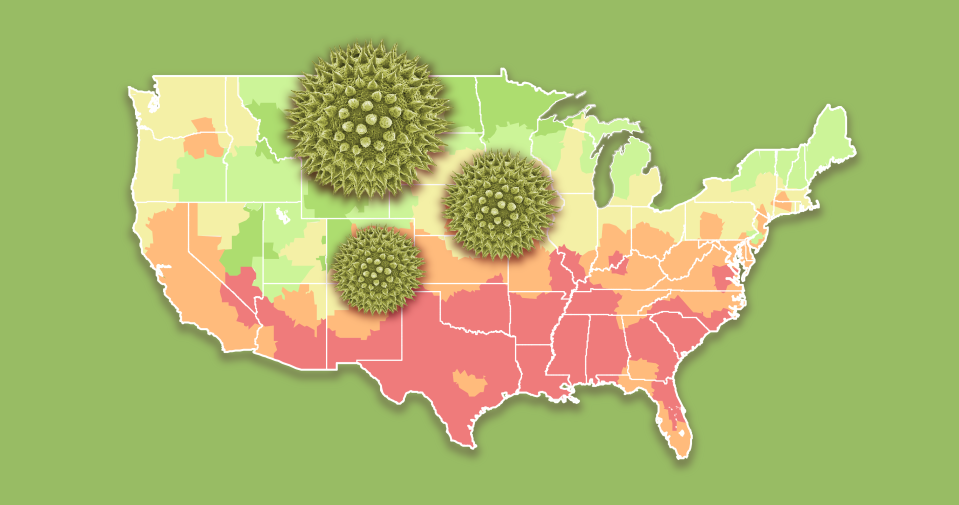Feel like your allergies are extra bad in Florida this year? There's a reason for that
You don’t need to read this column to learn pollen is coming on strong this year.
I’m sure the greenish/yellowish dust-like particles on your car or your constant itchy nose already clued you in. This is one of the worst allergy seasons in a while.
But why?
I got answers from Lynn Barber, the Florida-Friendly Landscaping agent at UF/IFAS Extension Hillsborough County and Alyssa Vinson, the horticulture agent for UF/IFAS Extension Manatee County.
Why is this year such a bad one for pollen in Brevard?

It’s not your imagination.
According to Barber and Vinson, the pollen count is higher this year.
We have more windy, warm weather to thank for the uptick.
“Pollen rates fluctuate in response to environmental triggers such as temperature and humidity,” Barber and Vinson said in a joint press release. “In warmer years, trees will produce more pollen. Of the three major trees producing much pollen this year, oak, pine and palm are the major culprits.”
On a daily basis, nearly all of Florida is considered to have medium to high or high pollen counts.
Florida isn’t alone.
The USA National Phenology Networks reported many cities across the country are seeing plants blossom sooner and longer, which equates to more suffering with allergies.
Not all of my flowering plants and trees produce pollen, right?

Yes, they all do.
It’s so these plants and trees are able to reproduce.
Plants pollinated by insects don’t have to produce as much pollen because insects distribute pollen efficiently.
However, plants that do not rely on pollinators produce more pollen. Wind carries pollen basically everywhere. Hence, windy weather gives the pollen more chances to travel more places.
Pollen is light and dry, which helps it travel several miles when the wind picks up.
How to know if you’re suffering from allergies
Each year there are about 50 million people nationally affected by seasonal allergies.
There are a wide variety of symptoms. Most common ones include watery eyes, itching, coughing, congestion, runny nose and fatigue.
How to get relief
Can you reduce our pollen exposure? Try these tips to help reduce your exposure to pollen and give yourself some allergy relief.
Limit outdoor activities during pollen season, which typically runs January through June.
Stay inside during peak pollen times: 10 a.m. to 4 p.m.
Shower after spending time outdoors to remove pollen from your hair and skin.
As tempting as it might be to keep windows open on nice days, opt for air conditioning instead, and change air filters frequently.
Wear a dusk mask when mowing the lawn, gardening or raking leaves.
Grab your umbrella and enjoy rainy days outside. Moisture helps clear pollen from the air.
Use a dryer instead of leaving clothes or towels outside to dry. Garments left outside will likely pick up pollen.
Medication works best if you take it before pollen hits the air. Speak with your doctor about medical treatments that would work best for you.
Ever wonder if that juicy rumor you heard is true? Can't seem to find the answer to a question you have or ponder what's really going on in a certain area? Send your question to Trending Reporter Michelle Spitzer and let her do the work for you. Spitzer will answer a new question every week. Email your question to AskMichelle@Floridatoday.com.
This article originally appeared on Florida Today: Much of Florida is coated in pollen, making it extra bad for allergies

